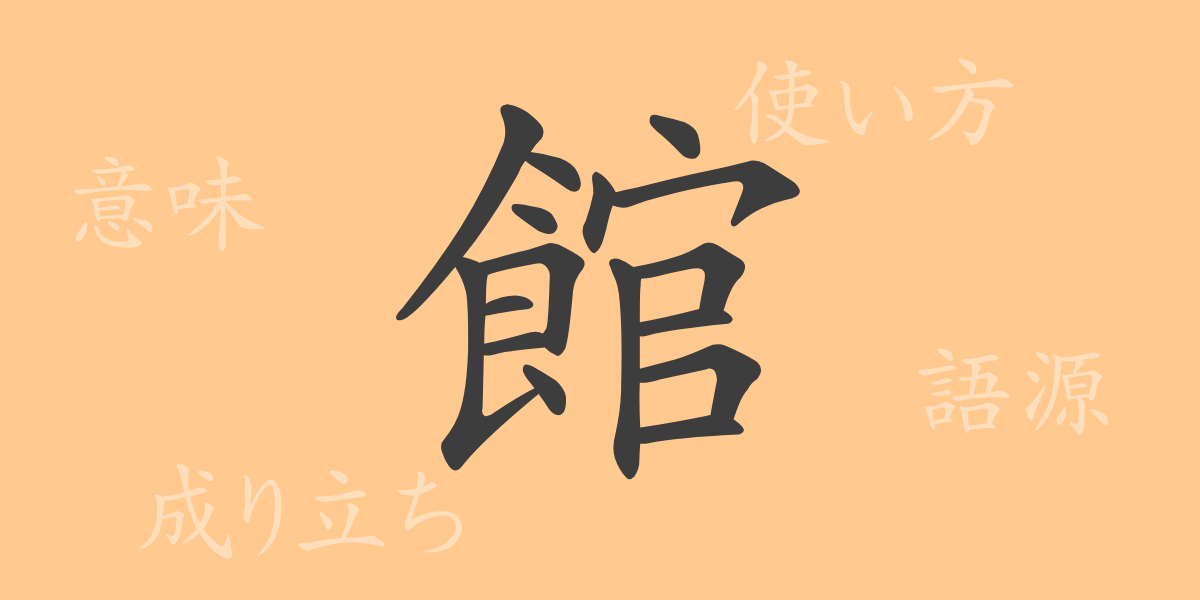The single kanji character deeply rooted in Japanese culture, “館” (Kan), carries with it a history and meaning that tells a story. This character signifies more than just a building; it speaks to the value and function imbued within. In this article, we will delve into the etymology of “館” (Kan), the evolution of its meaning up to the present day, its usage, and the charm that this kanji holds.
Origins of 館 (Etymology)
The etymology of “館” (Kan) can be traced back to ancient China. It was originally used to denote lodging facilities or guesthouses. In Japan, it was adopted to refer to the estates of the imperial court and nobility and eventually evolved to signify public buildings and facilities with specific functions.
Meaning and Usage of 館
In modern Japanese, “館” (Kan) refers not just to a building, but to the specific functions and social roles that the structure represents. For example, there are “館” (Kan) such as museums, art galleries, and libraries that serve as hubs for culture and knowledge dissemination. Additionally, the character is used for lodging facilities like hotels and “旅館” (
Pronunciation, Stroke Count, and Radical of 館
“館” (Kan) is one of the widely used kanji characters in the Japanese language.
- Pronunciation: The on’yomi (Sino-Japanese reading) is “kan”, while the kun’yomi (native Japanese reading) is “yakata” or “tate” .
- Stroke Count: The stroke count for “館” (Kan) is 16.
- Radical: Its radical is “食” (shokuhen, the “food” radical).
Idioms, Phrases, and Proverbs Using 館 and Their Meanings
There are numerous idioms, phrases, and proverbs that include “館” (Kan). For instance, “図書館” (toshokan, library) refers to a building that collects books, “迎賓館” (geihinkan, guesthouse) denotes a facility that entertains guests, and “展示館” (tenjikan, exhibition hall) designates a place for displaying items or works of art. These phrases are widely used in everyday life to clearly convey the roles and functions of each “館” (Kan).
Summary on 館
“館” (Kan) is a kanji that signifies a place with cultural value and function, transcending mere architectural structures. From ancient times to the present, its meaning and usage have evolved. “館” (Kan) will continue to play a significant role in our lives moving forward.

























